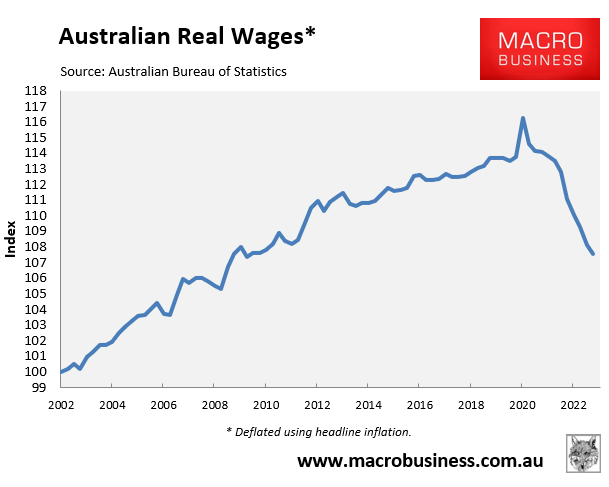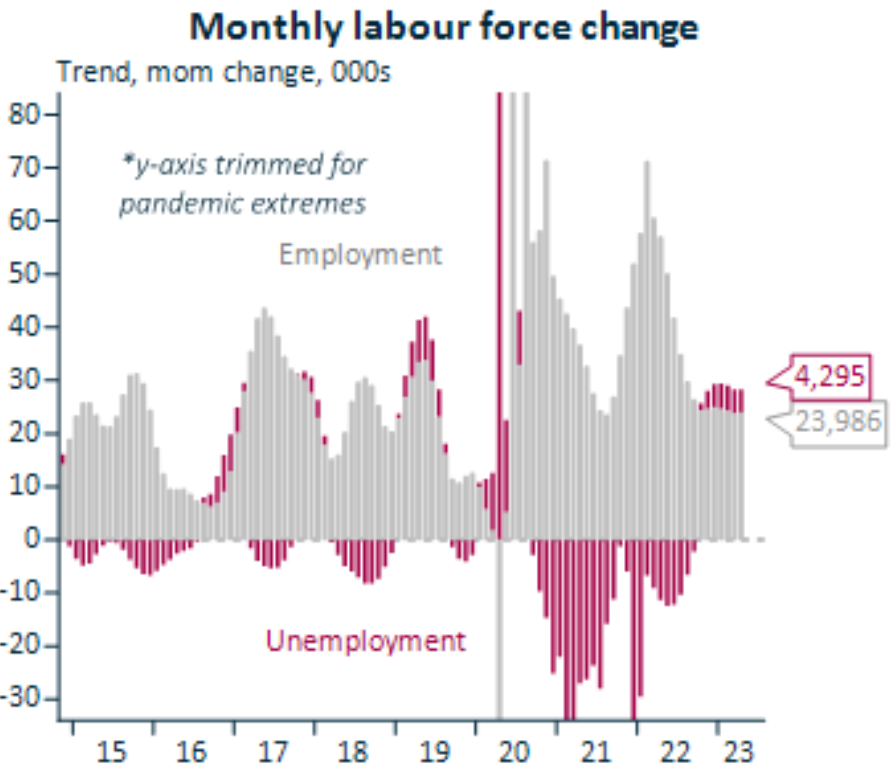The latest wage price data from the Australian Bureau of Statistics (ABS) showed that real inflation-adjusted wages have fallen to 2010 levels, down 7.5% from their mid-2020 peak:

Writing in the New Daily, Michael Pascoe argues that Australians “might never see that ‘wage growth’ we hear about”.
For wage growth to rebound, Pascoe argues that bargaining power would need to rise, but there are few signs that this is happening, especially with “the impact of higher interest rates still worsening and unemployment is continuing to rise”.
“Yes, there is that minority of jobs achieving wage rises closer to the inflation rate”, Pascoe acknowledges.
“They either are among the few to still have any industrial muscle or are in areas suffering severe skills shortages”.
But “the promised rising unemployment and weakening economy – our per capita recession – will impact both of those exceptions”.
Pascoe also argues (correctly) that higher wages from labour shortages actually lifts productivity.
“The less-productive enterprises that can’t handle the competition for scarce resources are meant to go broke, freeing up resources for the more productive enterprises”, Pascoe says.
“It’s tough, it’s Darwinian, it seems cruel, but that’s capitalism”.
“And when Australian non-resources industries have been dragging the chain on investing to improve their productivity, it seems they need a challenge to make them do more”.
Michael Pascoe has long been a shill for mass immigration and a ‘Big Australia’.
Yet, even Pascoe last year warned against plans to open the floodgates to migrant workers.
“A government that actually cared about the impact of inflation would be doing what it could to push for higher wages instead of suppressing them”, Pascoe said in March 2020.
“It wouldn’t be rushing to loosen the tight labour market by throwing the doors open to foreign labour”.
Why then has Pascoe failed to mention the dampening effect on wages from the Albanese Government’s record immigration program in his latest article?
Australia’s labour market is now growing at its fastest ever rate and this is now increasing the ranks of the unemployed, despite solid jobs growth:

Source: Alex Joiner (IFM Investors)
Obviously, growing the labour force like a science experiment while the economy is slowing is a recipe for higher unemployment, lower worker bargaining power, and ergo lower wage growth.
So why not call it out?

